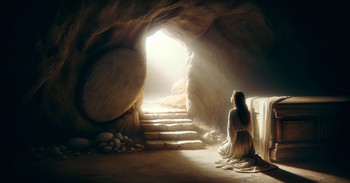From Praying the Names of God Week Twenty-One, Day Four

The Name
Justice is ultimately rooted not in a collection of laws or rules but in the very character and nature of God. As Judge of the whole earth, he is the only One competent to measure the motivations of our hearts. In the Hebrew Scriptures, the word "judge" is often parallel to the word "king." When we pray to God our Shophet (sho-PHAIT), we are praying to the One whose righteousness demands perfect justice but who has also provided a way for us to be acquitted of our guilt through the life, death, and resurrection of his Son.
Key Scripture
Judgment will again be founded on righteousness,
and all the upright in heart will follow it. (Psalm 94:15)
***
Thursday
PRAYING THE NAME
Then I saw a great white throne and him who was seated on it. Earth and sky fled from his presence, and there was no place for them.And I saw the dead, great and small, standing before the throne, and books were opened. Another book was opened, which is the book of life.The dead were judged according to what they had done as recorded in the books.The sea gave up the dead that were in it, and death and Hades gave up the dead that were in them, and each person was judged according to what he had done.Then death and Hades were thrown into the lake of fire.The lake of fire is the second death. If anyone's name was not found written in the book of life, he was thrown into the lake of fire. (Revelation 20:11-15)
Reflect On: Revelation 20:11-15
Praise God: Who reigns over both the great and the small.
Offer Thanks: That God will one day destroy death's power over you.
Confess: Any complacency that prevents you from sharing your faith.
Ask God: To save those in your life who do not know him.
Jonathan Edwards in his sermon "Sinners in the Hands of an Angry God" struck terror in the hearts of his eighteenth-century listeners by assuring the unconverted that the bow of God's wrath was bent straight at their hearts and that nothing but the mere pleasure of an angry God kept "the arrow one moment from being made drunk with your blood." He spoke relentlessly of their danger, painting a graphic picture of "hell's wide gaping mouth" and of sinners hanging precariously over it like a spider or "some loathsome insect" about to be dropped into the fire. Their wickedness, he assured them, made them as "heavy as lead, and to tend downwards with great weight and pressure towards hell."
His sermon was so terrifying that people jumped out of their seats weeping and wailing over their sins, making such a commotion that Edwards was unable to finish. If it's possible to frighten people into heaven, Jonathan Edwards must certainly have done so through the words of what has become America's most famous and most controversial sermon.
While I wouldn't recommend handing out copies of that sermon to unconverted friends and family members, Edwards' words speak powerfully about a danger hardly anyone warns us of today. Hell, after all, has become passé. Even if people admit the possibility of such a place, they doubt that anyone they care about is heading in that direction. But Scripture assures us hell is more than a state of mind or the figment of an overactive religious imagination. The Bible describes it as a place of torment, of eternal separation from the God who made us. What, after all, could be more tormenting than to live forever without the slightest trace of God? Sunshine, soft grass, the sound of laughter, the smell of food, the love of family and friends—these and a million other delights are blessings from the hand of God we tend to take for granted.
Without his presence or his sustaining gifts, hell cannot hold a single pleasure, a moment's joy. Imagine living in utter loneliness, a howling emptiness, complete alienation, hating and being hated—world without end, forever and ever. The opposite of all we ever longed for, of everything we were made for.
In one sense the prospect of eternal judgment is supposed to scare us. Pondering hell and the reality of a godless eternity can propel us toward heaven, motivating us to live for God so fully that we attract others to him. It can invigorate our spiritual lives. Let us pray today as though there is no tomorrow—especially for those who don't yet know God. Let us ask him to shake them up and wake them up and bring them home before it is too late.
For more from Ann Spangler, please visit her blogspot on Christianity.com. And be sure to check out Ann's newest books on AnnSpangler.com. To hear more from Ann Spangler, sign up today at annspangler.substack.com.
Meet your spiritual ancestors as they really were: Less Than Perfect: Broken Men and Women of the Bible and What We Can Learn from Them.




